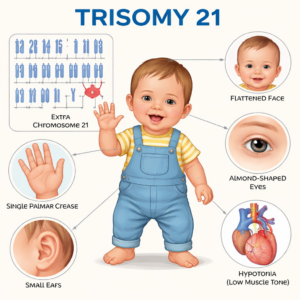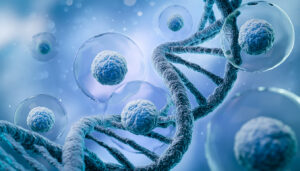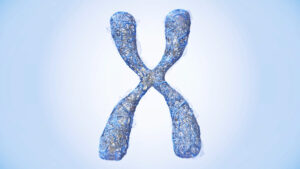How are rare diseases inherited?
Genetic inheritance determines how gene mutations, and chromosomal abnormalities, are passed down from parent to child. How these mutations are inherited will determine a child’s risk factor for developing a rare disease, if one or both of their parents are carriers. The types of genetic inheritance determine if and how a rare disease is passed down.
Understanding the causes of rare diseases, and specifically how they are inherited, is crucially important in being able to help families understand more about their genetic health, and that of their future children – and enables them to make decisions necessary for the health of their future children.
Some rare diseases can be inherited in more than one way. Some of them may be caused by one of several gene mutations, and each of these genetic changes may be inherited differently.
The more we understand about how rare diseases are inherited, the more we empower rare disease patients and others, when it comes to their genetic health.
Types of Genetic Inheritance
- Autosomal recessive inheritance
This pattern of inheritance means an affected individual receives one copy of a mutated gene from each of their parents. This means they receive two copies of a mutated gene. Parents, who carry only one copy of the gene mutation will be silent carriers, more often than not, as they will not show any symptoms. However, they have a 25% chance of passing the copies of the gene mutations onto any of their future children.
Examples of rare diseases inherited in an autosomal recessive pattern include Tay-Sachs and Roberts syndrome.
2. Autosomal dominant inheritance
With autosomal dominant inheritance, just one parent is the carrier of the gene change. This means they have a 50% chance of passing it on to each of their children. Rare diseases passed on through autosomal dominant inheritance are caused by an individual receiving just one copy of the gene mutation.
Examples of rare diseases inherited in an autosomal dominant pattern include Noonan syndrome, Kabuki syndrome, Marfan syndrome, and Coffin-Siris syndrome.
3. X-linked recessive inheritance
Males are usually more severely affected by rare diseases inherited in an X-linked recessive pattern. This is because males have only one X chromosome, meaning just one copy of a gene mutation on this single X chromosome causes the syndrome. Females, with two X chromosomes, only one of which will be mutated, are not likely to be affected or will experience much milder symptoms.
Examples of rare diseases inherited in an X-linked recessive pattern include Kabuki syndrome, and Mucopolysaccharidosis Type 2.
4. X-linked dominant inheritance
For rare diseases inherited in an X-linked dominant pattern, a single mutation in one of the copies of the gene will cause it. This can be in one of the two X chromosomes females have, and in the single X chromosomes males have. Males tend to have more severe symptoms than females as a result.
Examples of rare diseases inherited in an X-linked dominant pattern include Kabuki syndrome and Fragile X syndrome.
5. Unknown inheritance pattern
Research into the exact causes and inheritance patterns of many rare diseases is either limited or ongoing. For some genetic changes, there is no known or yet identified inheritance pattern. With some rare diseases, there is no identified gene change responsible for it either.
6. Mitochondrial inheritance
This pattern of inheritance is passed solely through the Mother. This is because it involves the genes found in our mitochondrial DNA. Mitochondria are passed through the egg cells.
7. Microdeletion inheritance
This pattern of inheritance occurs when there is a deletion of several genes on a chromosome. The specific chromosome on which the deletions occur will determine the syndrome they cause.
Examples of microdeletion syndromes include Prader-Willi syndrome and 22q11.2 deletion syndrome.
8. Disomy inheritance
Normally we inherit one copy of each chromosome pair from each of our biological parents. With disomy, both copies of the specific chromosome pair are received from one parent only and none from the other. This is also often known as uniparental disomy. With most genes, this is not an issue, and will not cause any medical or health issues. However, when specific genes are involved, issues with genomic imprinting can cause a rare disease, or raise the risk of a child developing one.
Examples of rare diseases with disomy inheritance include Angelman syndrome.
9. Multifactorial inheritance
Rare diseases inherited in a multifactorial pattern, are believed to be caused by several factors, both genetic and environmental. For the most part, the specific environmental factors are unknown, or yet not proven.
10. Mosaic inheritance
Mosaicism occurs very early in the development of a fetus. It is an error in cell division. The human body is made up of 46 chromosomes, in 23 pairs. Mosaicism occurs when an individual has cells in their body with more or less chromosomes than the usual 46. This can trigger issues that affect different systems and parts of the body.
Some rare diseases are not inherited and are the case of new or spontaneous gene mutations that occur during cell division, during the development of the cells responsible for reproduction, or during the initial development of the fetus. These can not be predicted or prevented.



